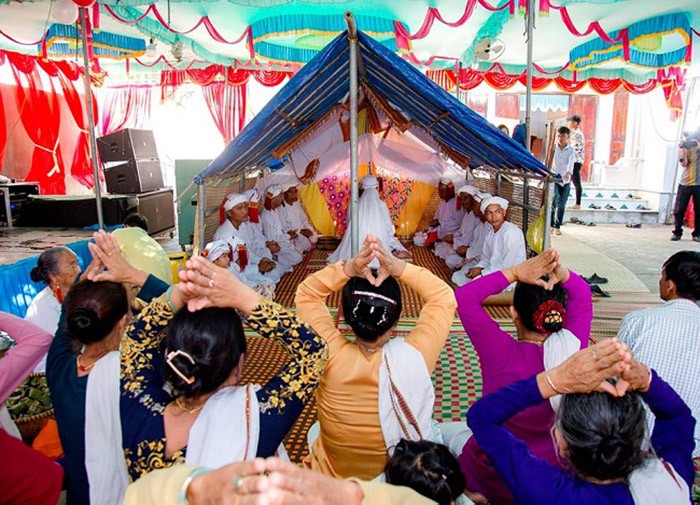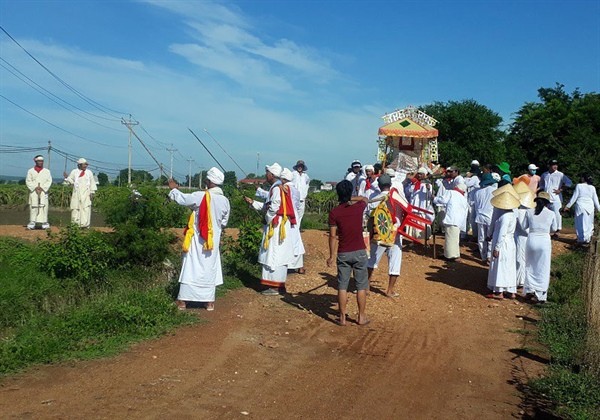(VOVWORLD) - Cham people used to have cumbersome procedures for weddings, funerals, and other rituals. Since the Party Central Committee issued a resolution on developing Vietnamese culture imbued with national identity in 1998 and other social movements to build cultural families and lifestyles, the Cham have simplified their rituals to uphold their traditions while reducing expenses.
 A wedding ceremony of the Cham in Ninh Thuan province. A wedding ceremony of the Cham in Ninh Thuan province. |
Cham people in the south central province of Ninh Thuan have agreed on new regulations for wedding and funeral ceremonies while keeping major features. For example, a funeral ceremony now takes 3 or 4 days instead of 10 days as it did in the past.
Huynh Thanh, who lives in Phan Thanh commune, says that in the past only dignitaries, the rich, and high-ranking Cham Ba Ni people were allowed to have a standard funeral. Now all deaths are equal.
“Eating at a funeral has been simplified to save money for the host. We have groups to help them cook and serve guests. A smaller number of monks and dignitaries are invited,” Thanh said.
Cham regulations now specify that helpers at a funeral must eat at home and offerings to dignitaries have been reduced.
“We encourage people to practice thrift at a funeral ceremony. For example, we prepare just enough beef and fish for worshiping and eating. We drink less alcohol to avoid getting drunk,” Chief monk Ba Xanh of Phan Hoa commune said.
 A funeral ceremony of the Cham Balamon. A funeral ceremony of the Cham Balamon. |
Changes in the awareness and behavior of the Cham are due mainly to the provincial Cham Balamon Dignitaries’ Council. Chief Monk Thuong Xuan Huu, President of the Council, said the Council issued new regulations for festivals and ceremonies to help people save money.
“A funeral ceremony has been shortened from 10 days to 4 days. A marriage in the past included introduction, proposal, engagement, and wedding ceremonies. Now the two families meet once to set a date and organize the wedding ceremony together,” Thanh said.
Thanh Thi Minh Hien, Deputy Director of Binh Thuan province’s Ethnic Council, said, “In order to encourage people to adopt a cultural lifestyle in wedding, funeral, and worship rituals, we should invest more in education.”
In some Cham localities, backward customs still exist, but local authorities continue to promote a cultural lifestyle to local people.